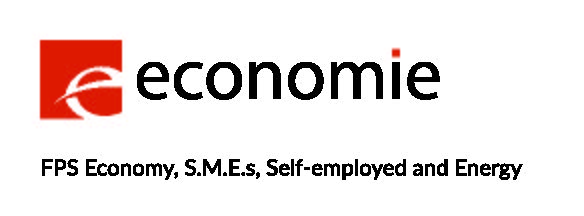Introduction
- MP Multi Use: Multi-(re)-use scenarios for existing offshore infrastructure: a conceptual, economical, legal and structural reliability study
- 4 partners
- Coordinator: VUB
- Project type: Fundamental research
- Start Data: 1/11/2023
- Duration: 2 years
- Total Budget: €1.607.145
- Funded by the Energy Transition Fund (ETF)

Project Context
Belgium has established itself as a pioneering leader in offshore wind energy, with the already installed 2.3 GW and additionally planned 2.5 GW bottom-fixed capacity. The federal government has committed to maximize the yield and economical use of its offshore energy production in the Belgian Part of North Sea (BPNS). This needs to be achieved in the most sustainable way by maximizing the use of the existing supporting infrastructure (foundations, scour protection layers and cables).
In parallel, the Belgian government has also initiated a working group on sustainable decommissioning of offshore wind projects where the option to re-purpose these offshore infrastructures is also considered. However, it is not clear yet which possible routes are technically and economically useful to date. There are currently 399 wind turbines installed in the Belgian part of the North Sea. The oldest wind turbines are already operational for about 15 years. The rapid developments and improvements in this sector combined with this turbine age amplifies the need to possibly repower the older wind farms and therefore prepare the corresponding decommissioning phase. By the end of the decade, decommissioning and replacing offshore wind turbines will start.
Project Description
The project will study the feasibility of (re)-using existing infrastructure for hybrid energy generation and/or repurposing it for wave/tidal or accommodating storage technologies. It therefor aims to improve the yield and lower the LCOE of the Belgian offshore zone and to provide an alternative for full decommissioning of the existing infrastructure. In MP Multi-Use the experienced consortium partners will perform a conceptual, economic, legal and structural reliability study, of the multi-(re)-use of existing infrastructure and the combined use of the maritime space.
Project Objective
This project aims to increase the knowledge with respect to potential hybrid-re(use) of monopile foundations for attaching different forms of energy production such as wave energy converters (WEC), tidal energy converters (TEC), or floating solar panels in combination with energy storage solutions if appropriate.
The project is also motivated by EU targets (Ocean energy (europa.eu) on deployment of tidal and wave energy to develop:
- 100 MW by 2025,
- 3 GW by 2030 and
- 40 GW by 2050
Some potential benefits for hybrid (re)-use include:
- Increased energy generation: By combining multiple sources of energy generation, hybrid offshore wind farms can potentially produce more energy than wind farms that rely on wind turbines alone.
- Improved energy reliability: Wind and wave/tidal energy production can complement each other, with wind typically being more consistent and wave/tidal energy being more predictable. This can lead to a more reliable and stable offshore power supply with lower balancing costs as current standalone offshore wind farms today.
- Cost savings: Hybrid offshore wind farms may be able to take advantage of economies of scale and shared infrastructure, leading to system cost savings compared to separate wind and wave/tidal energy projects.
- Reduced environmental impact: Hybrid offshore wind farms may be able to reduce the overall environmental footprint of offshore energy production by using multiple sources of renewable energy and further reducing the need for fossil fuel. Re-using existing infrastructure if possible is the one of the most sustainable ways to deal with waste management.
- New industrial offshore value chains: Being an early adopter of new emerging energy trends is essential these days to excel in the offshore energy business. Belgium has a unique opportunity once again take a leading role in multi-use and re-used offshore wind infrastructure if projects as this provide the needed scientific possibilities for hybrid (re)-use.
This project also wants to evaluate the potential re-use of the existing infrastructure as alternative for a full decommissioning. Part of the foundation might serve a new purpose in future offshore energy endeavors. Past studies based on field monitoring data showed that current OWT monopile supported structures are over dimensioned. Therefore, it is expected that the structural integrity of the offshore foundations structures in Belgium can be guaranteed for re-purposing them. Similarly, the technical lifespan of the used subsea cables far exceeds the durations of the concession agreements, also hinting to opportunities for re-usage.
Partial decommissioning of offshore wind foundation structures can provide several benefits, including:
- Lowering the cost of decommissioning: By partially decommissioning the structure, rather than fully removing it, the cost of decommissioning can be reduced as only certain parts of the structure need to be removed.
- More sustainable development/circular economy/re-use of material: By partially decommissioning the structure, certain materials can be reused or recycled, promoting a more sustainable and circular economy.
- Environmental benefits/Maintaining the artificial reef: By leaving certain parts of the structure in place, an artificial reef can be created, providing benefits for marine life and potentially increasing biodiversity. Additionally, the structure can continue to provide habitats for marine animals, which can be beneficial for the ecosystem.
This project will investigate the existing state-of-the art of hybrid energy generation and the potential future use of offshore foundations after the decommissioning of an offshore wind farm. In particular, the research will consider the economical, practical, legal and technical feasibility for different future use cases. The proposed economic, legal, environmental and technical studies must allow to decrease the risk and increase the likelihood of the envisioned future hybrid-re(use) of the existing windfarm infrastructure and might provide good practices for new projects.
More info and related articles can be found on Researchgate
Subsidy
The MP Multi Use project is financially supported by FPS Economy, as a fundamental research project within the Energy Transition Fund (project call 2022- duration of project 01.11.23 – 31.10.2025)


